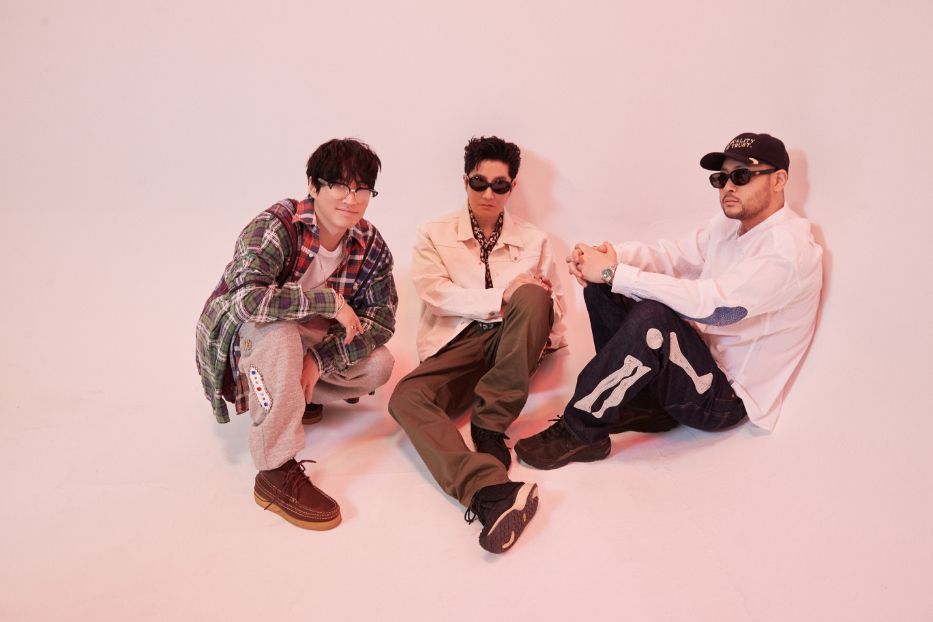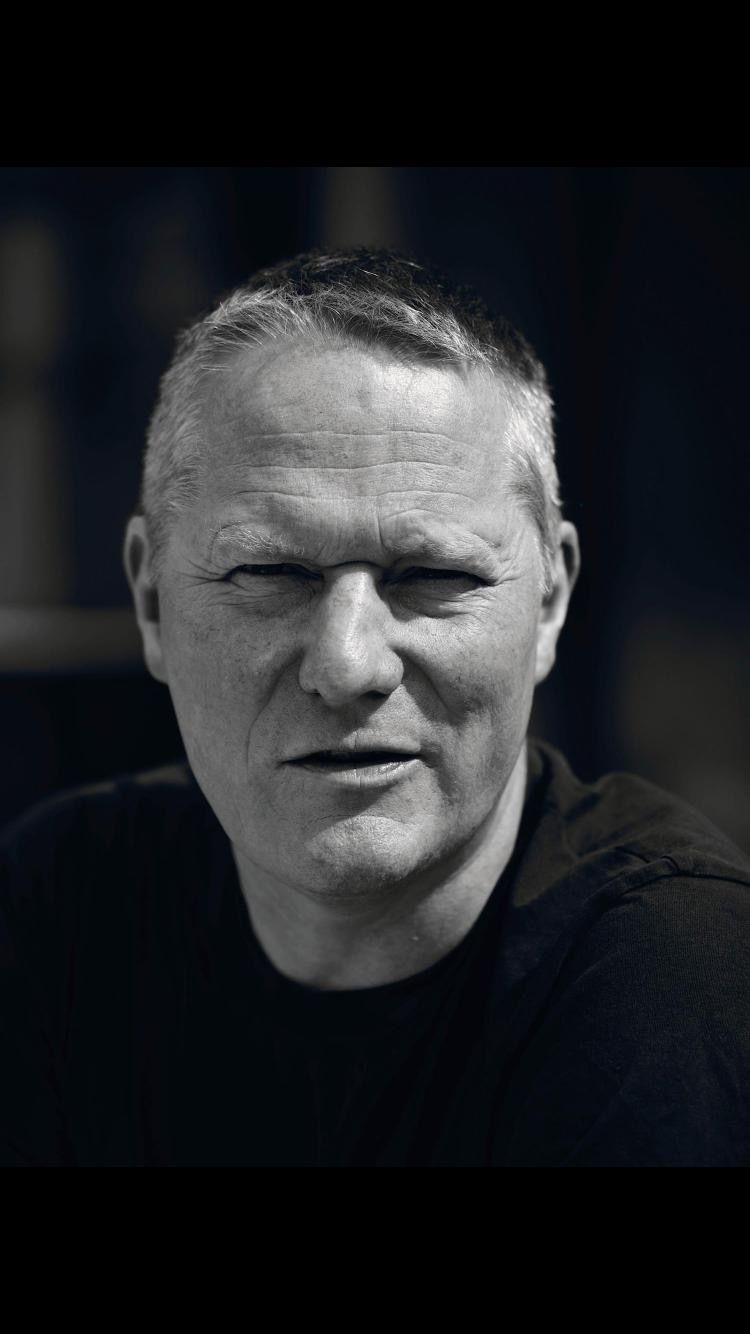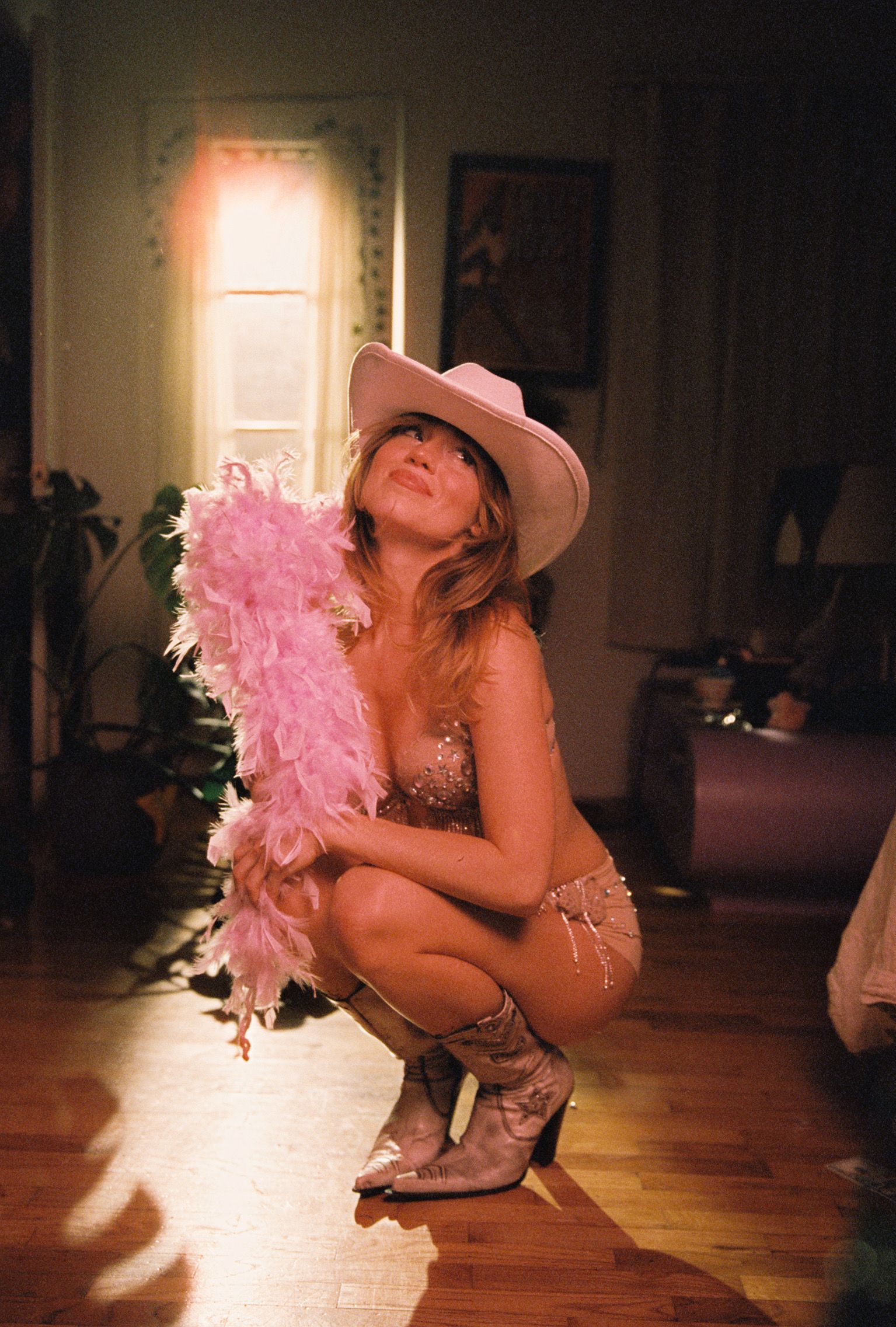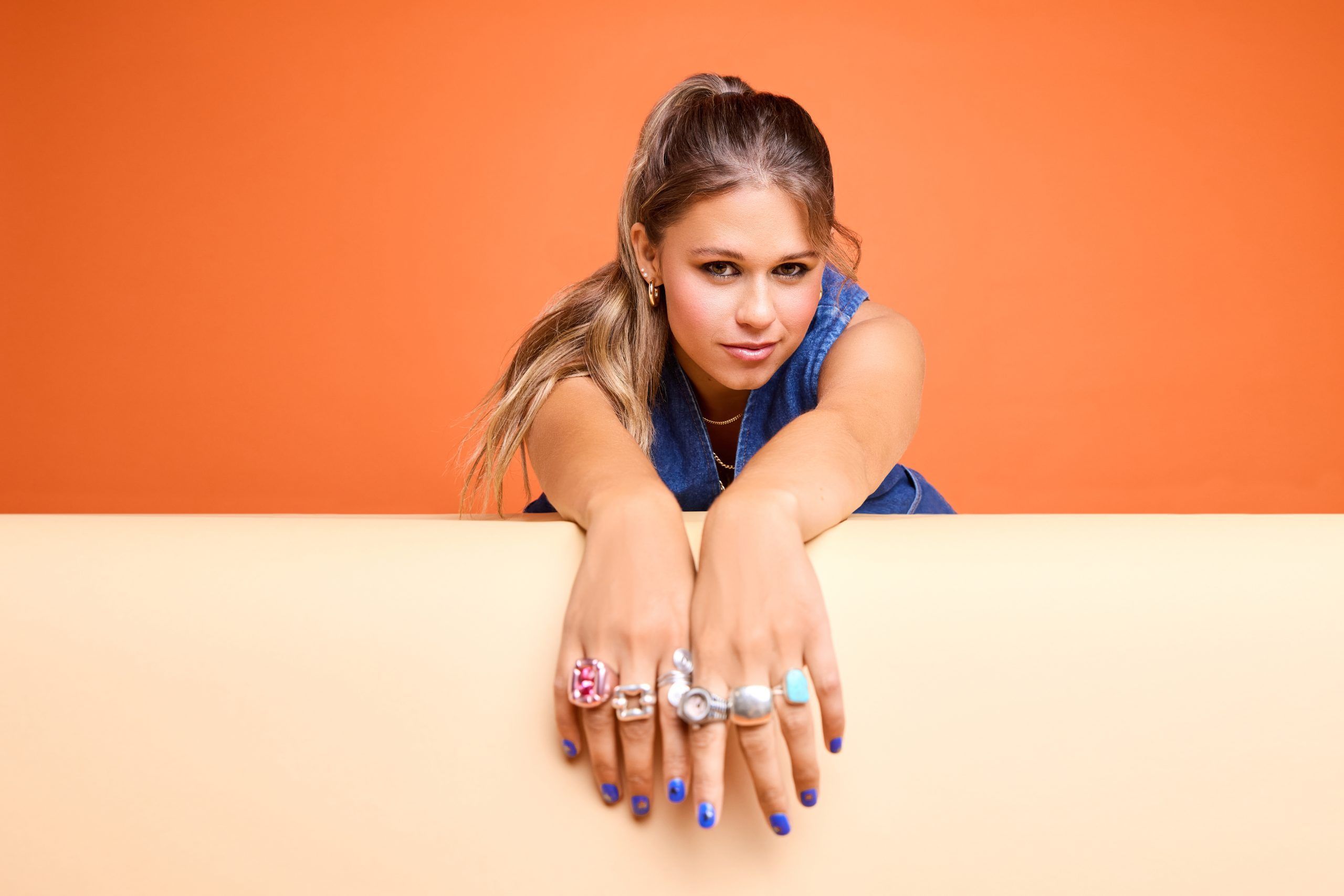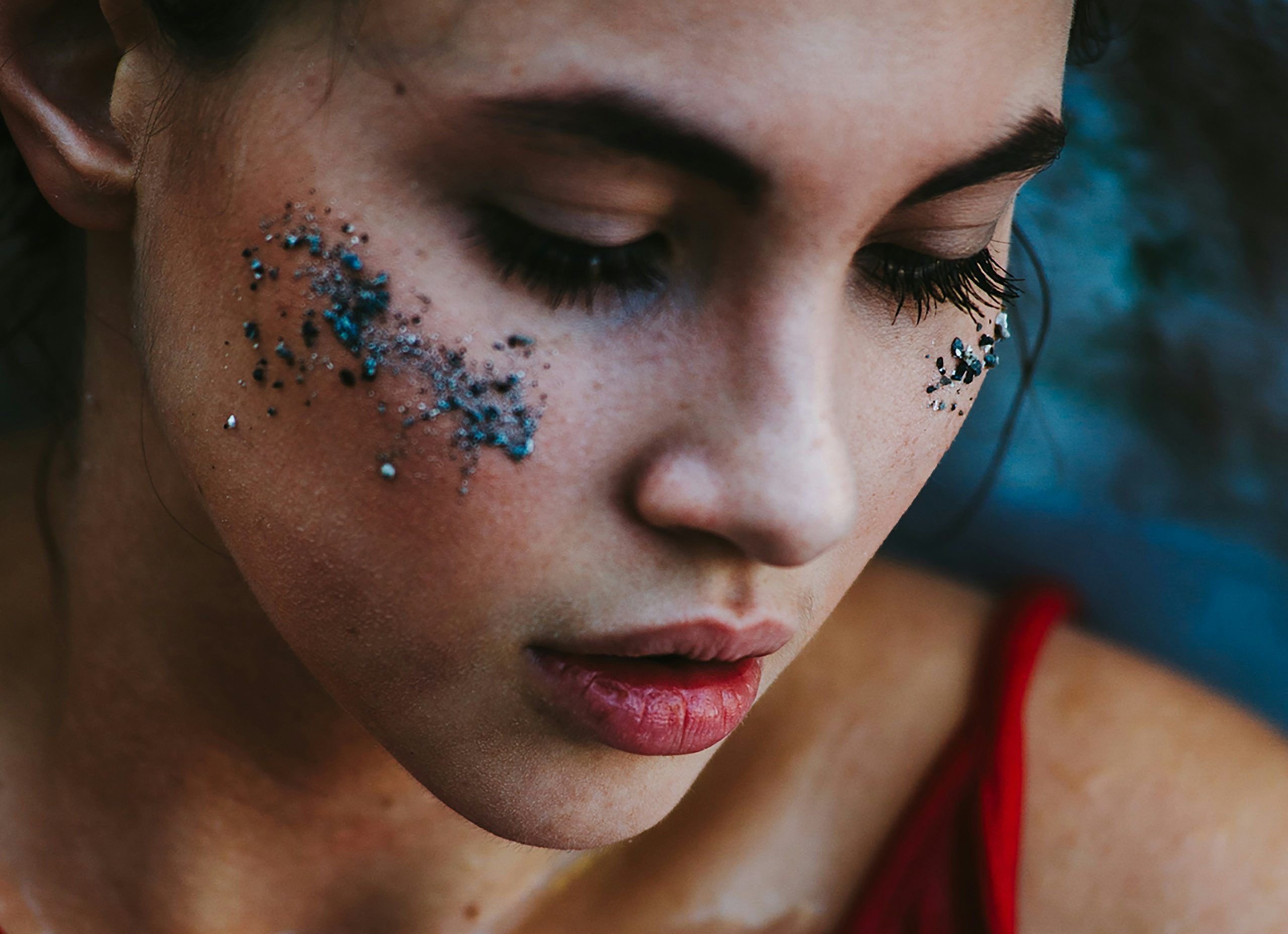Celebrating 20 years together and their 10th album release Epik High Is Here 下 (Part 2), Tablo, one third of South Korean hip hop legends Epik High, is contemplating what else there’s left to say to the world.
‘The memories of today were the dreams of those days’ Tablo, one third of Korean Hip-Hop juggernaut Epik High, raps in Prequel, the second track off their new album Epik High Is Here 下 (Part 2). The follow up to 2021’s Epik High Is Here 上 (Part 1) is a rare introspective reflection for the trio, which also includes members Mithra Jin and DJ Tukutz, who’ve often shied away from examining their own legacy as one of South Korea’s most prominent and groundbreaking artists. But this isn’t just a normal record. This release marks the group’s 10th official album together, as well as, serendipitously, the trio’s 20th anniversary as a unit, and with neatly packaged milestones like this it’s only human nature to contemplate what they might mean.
Emerging onto the scene with their first album Map of the Human Soul in 2003, the last 19 years has seen Epik High become a ubiquitous presence in the South Korean music scene, breaking barriers (in 2010 they became the first Korean artists to top the U.S. iTunes hip-hop charts) while also serving as an influence for countless musicians who’ve broken out after them. Hailed for their consistent and sensitive approach to talking about mental health in their music, Epik High has never avoided bearing the messier parts of their psyche to a sometimes unsympathetic world, which is something the fans they’ve picked up over the last two decades have undeniably resonated with. Those themes continue to exist in Epik High Is Here 下 (Part 2), and will be a cathartic release for the group and audiences as they embark on an upcoming North American tour and Coachella performance following the release of the album. But, across these 12 songs, the group also ventures to contemplate not only their own artistic footprint, but what their place can continue to be in an industry that often favours newness over longevity.
Speaking to 1883’s Lucy Ford over video call from Seoul, Tablo, otherwise known as Daniel Lee, discusses scrutinizing his legacy, sharing struggles with fans and figuring out if there’s anything left to say to the world after 10 albums.
Congratulations on the new album! I really feel like I went through a journey of all your emotions when I was listening to it, and it’s been said that this is your most personal album to date. What kind of stuff are you trying to verbalize with this album?
It’s a strange moment for Epik high, because it’s 20 years since we met, and since our debut, it’s like going on 19 years now. So that’s two decades that we’ve been together, and in Korea the 10th album is sort of a milestone because it’s rarely reached by musicians, especially musicians nowadays. You don’t have groups going on for over 5 or 10 years, right? And to hit that two decade mark sort of shocks us as well. We felt like it was a moment for us to just look back on all the ups and downs, and to focus on what we do best, and I think what we do best is music that people that are hurting can relate to. Music that can uplift them, but also just, you know, be next to them and be like “I know what you’re going through”. I think that’s what’s behind the title Epik High is Here. We’re trying to say Epik is here for you, and at the same time, if you feel like you’re not going to make it, realize that we’ve gone through so much shit, and we’re still here. So hopefully, we can give you the encouragement you need.
I know so many people who are fans of Epik High for that reason. They feel very seen by what you guys write, and what you guys put out. A lot of your lyrics have always been about mental health, which can feel very isolating. Do you feel like it’s cathartic for you to make it a communal experience?
Yeah, especially with songs like Family Portrait on the album. It’s actually the first time that I’ve talked directly about my dad after he passed, and also about what’s been left of the family. I sort of didn’t want to deal with it, and it’s been a very, very long time, and I just kept putting off dealing with it emotionally. Then I decided to write that song, and I think it was important for me to deal with it in that way as well. I’m hoping that anybody that’s dealing with losing a family member, or just dealing with the breakdown of a family – and I’m sure a lot of people experienced that during the last couple of years – I thought that maybe me getting over it would result in other people being able to deal with it better. So yeah, it definitely is. It’s not just like I’m sitting down with my members and we’re like “yo let’s set out to make people cry but feel better afterwards”, because we’re doing that first and foremost through the music.
A good cry and feeling better after is the best feeling I think, anyway.
Yes it is!
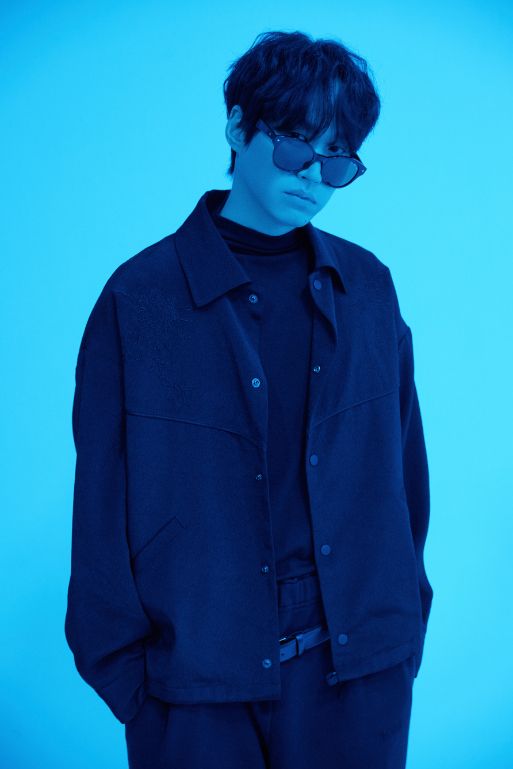
You have never shied away really from sharing a lot about yourself. Do you ever go back and forth on what parts of you want to share, what parts you maybe don’t want to share? Or is there ever a feeling of the more you share the more you have to keep sharing?
I think because of the unique catastrophe that I had to deal with… back in the day, I, you know, dealt with basically cybercrime right against me. [In 2010 Tablo was accused by a mobilized internet group of lying about his academic past at Stanford University. Despite the evidence levelled against him being proved as false, the intense public backlash led to death threats, stalking and having to his record label at the time]. That was a situation where people were attacking me online. It was like the epitome of oversharing, where they would dig into my past, my family’s past, and there were no lines that weren’t crossed.
Privacy just was thrown out the window and having experienced that, I sort of shied away from being myself. Because of my personality – ever since I was a kid – I am very honest. I really don’t have that much to hide and I have no problem being very open to people. That’s caused minor headaches before, but when what happened to me happened, it destroyed not only my life, but others around me. So I did shy away from sharing myself for real. Like I would be on Twitter and I would say funny things or share memes and just give updates and stuff, but I wasn’t comfortable really sharing what I felt or what I thought, but I think that made me focus more on the music. I feel like if I do it through music and do it through lyrics, because I have metaphors and stuff that I can sort of hide behind, I feel like even if I’m open as hell there I can always say “this is just poetry for me” or “this is just art for me” and it gives me a lot of freedom.
I often describe social media as like an exposed nerve. Letting your stuff be poked and prodded, whatever you say.
Yeah!
How was the process of making this album with your other members Mithra Jin and DJ Tukutz?
I think the album before – Epik High Is Here 上 (Part 1) – and this album were probably the most difficult albums to create, because of the situation that the world is in. I’m sure no one imagined that we’d still be talking about this after two years! It’s ridiculous, right? And I’m okay, but it’s just really hard making music and not knowing whether or not you can perform it.
Is that something you consider when making music, how it’s going to feel being performed?
Yeah we honestly think of a song as getting one step closer to being complete once it’s performed for people. Music is, ironically, a very lonely occupation, because you’re clearly creating it to be heard by many people. But the way things are now, not just with COVID but with technology, quite often you’re alone making music and then you put it out there and you never get to see people’s like eyes light up, or you never get to see them close their eyes because it reminds them of a memory, or like a heartbreaking moment. And for me, I need to be able to see a human face react to know that my music is doing what it’s supposed to do, and not having that for the last couple of years was very difficult. But that’s why, with this album, I think we had a much happier time making it – despite some of the sad songs on the album – because we knew that we were going on tour right away. We have the whole North America tour, we have Coachella, and just knowing that we’re gonna be able to perform this for real people made the experience so much better.
It’s crazy how quickly we adapted to the idea that a live audience is not a promise when that’s how we have lived life forever.
Yeah!
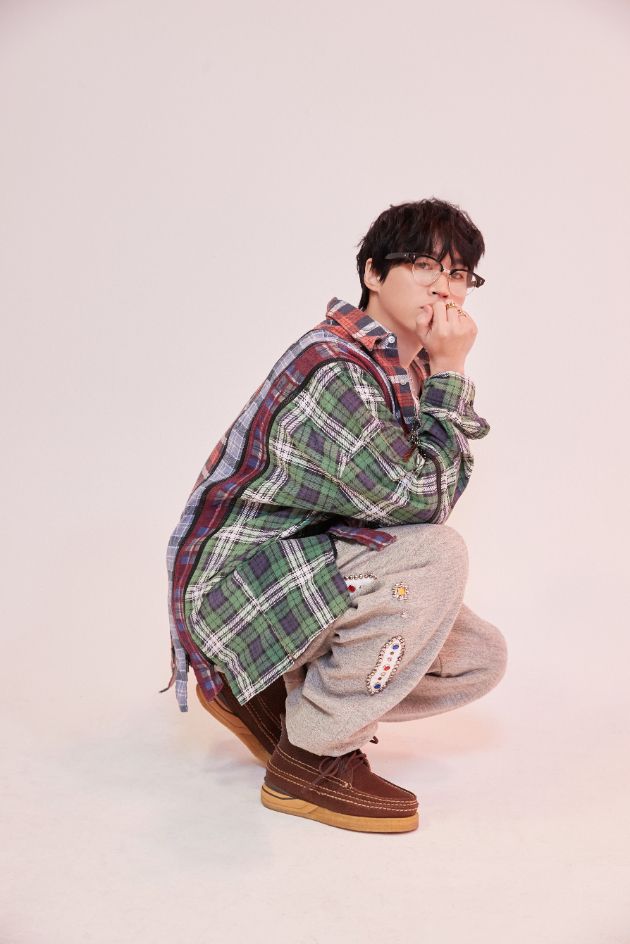
You pre-released Rain Song (Feat. Colde), which is on this album. I know rain is a kind of recurring theme in your music, is there a particular reason for that?
I actually started wondering about that as well. Well, first of all, I like rainy weather. I work best when it’s raining for some reason. Also, when I’m writing songs, it just pops out of my mouth. I think it’s two different things. I think the first is that I really appreciate having a roof over my head when it’s raining. When it’s not raining you don’t really think about it, but when it’s raining and you can actually hear it on your roof or on your window, it reminds you that you have shelter. And I think secondly – and I thought of this recently – it’s because it rained a lot in Vancouver when I grew up there as a kid. My parents left me in Canada by myself and went back to Korea, my brother and sister were in the States, and I was in a boarding school by myself. Weekends for an international student in a boarding school were horrible because everyone else got to go home. They were at boarding school for just the weekdays, and on the weekends they would just go home, but I couldn’t do that. So I was all alone a lot, and I think subconsciously that’s when I was the most lonely, and I think I think it sort of shaped whatever my nature is right now.
I also went to boarding school and my parents were abroad, so I understand weekend loneliness.
It’s really lonely.
Yeah, especially as a teenager. What’s the process of choosing who will feature on your albums?
I have a lot of friends that are film directors in Korea, and I think it’s the exact same process. I tend to look at an album as a movie. Every song is a scene in that movie, and I’m trying to cast the best possible actor to deliver that scene. Quite often, when we’re working with other people, I have the melody and the lyrics written for them and it’s not easy for some musicians to deliver something that they didn’t write. So I think it’s even more important that I have someone in mind, and that I write it specifically for that person. At this point, we’re kind of running out of people to work with.
I was scrolling your list of collaborators and the list really does go on and on. A healthy list!
This one time, I think like two or three albums ago, I couldn’t come up with a female vocalist that we definitely needed. So I called Suga (from BTS) and he was with RM (also from BTS), so he was like, “RM who’s a good featuring artist for Epik High for a sad song?” and RM was like, “Is there a female vocalist that they haven’t worked with?!”
And you were like “that was my exact question!”
I was like, “I need to work with somebody I’ve never worked with” and he’s like “is there a female vocalist in Korea that Epik High hasn’t worked with?” And I laughed my ass off because it’s kind of true.
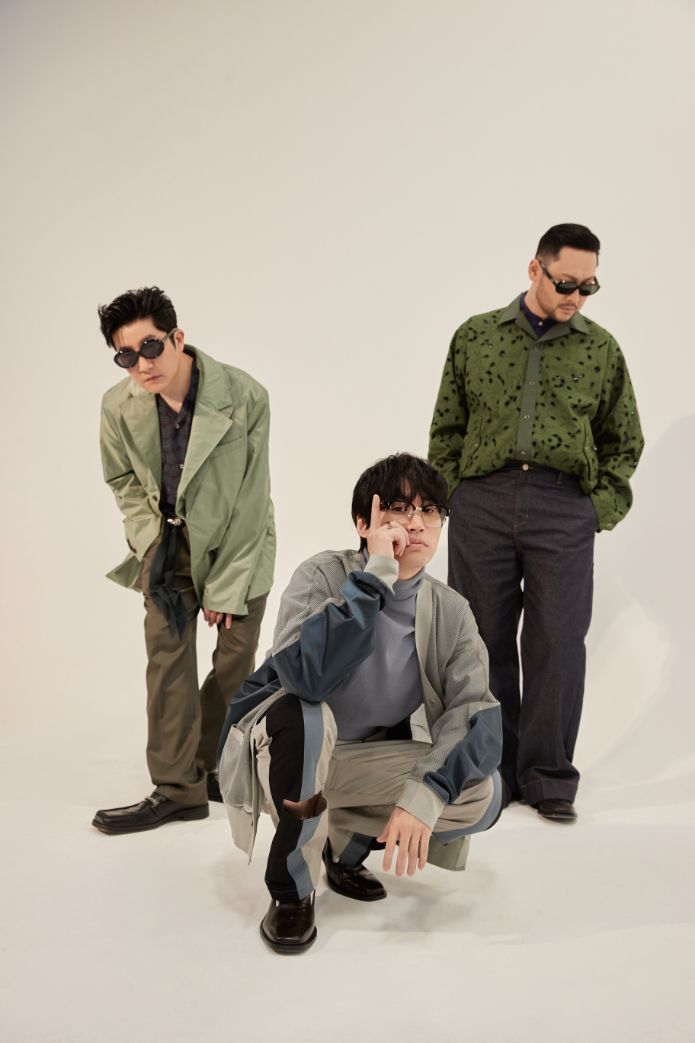
In previous interviews that I’ve read with you, I feel like you’ve never really sought to think too hard about your longevity, or what your longevity necessarily means in a fast paced industry, but this album feels particularly introspective about time in a way that feels almost impossible not to consider those things. Did it force you to reflect in a different way?
Well, honestly, after the first 4 or 5 albums, it’s just something that we would just say to each other – “Yo, we gotta keep going until at least 10 albums” – and then slowly, we were getting to the 8th album, the 9th album, and that 10th album that we’ve been sort of saying as a placeholder for something that probably won’t happen – like teenagers saying “when I’m an adult” – came pretty soon. DJ Tukutz constantly was saying that after the 10th album we should stop releasing albums, because it’s just a good number to end on, and what more can we possibly say after 10? Some of these albums had like 27 songs and this part one and two together has 22 tracks – like what more can we possibly say after this? I would love to do music forever, but that’s not really up to us anymore, if you think about it. If people stop listening to it or If people stop caring it’s gonna be really hard to continue to do that, so I think that’s one of the reasons why this album sort of sounds like there’s a finale to it. We know that this is going to be the end of a chapter and it’s going to be up to us, and also the audience, to figure out whether or not this will become the start of another chapter.
Considering it has been two decades since Epik High first met, have you ever thought about what you would tell the Tablo of 20 years ago if you could?
I would have said “just turn around and run, this isn’t what you want,” but I really, truly doubt that I would have listened. I didn’t need me to tell me that, I had other people around me, like 99.9% of the people around me, telling me that this probably isn’t the best choice [to do music]. Maybe also “live a less conspicuous life” would be the advice I may say, because I know the sheer amount of shit you have to go through. I’ve experienced it, so I don’t want this young Tablo to go through that again. But then if you start tweaking the little things in the past, and it starts changing things that you have now… If I avoided struggle at one point in the past and it causes this butterfly effect where I never meet my wife, or I never have my daughter, who is, like, my best friend… Would I want to avoid that pain back in the past and then lose everything I have now? I don’t think so. So if I ran into me, I would just hide my face and make sure that he doesn’t notice anything weird and just goes on living his life and with all the good things and bad things.
I think it’s very perceptive to admit that anyone who is pursuing creative things just won’t listen if you tell them not to do something.
They will not listen and reverse psychology doesn’t work on them either.
Do you approach being creative differently than you did 20 years ago?
I think back in the day I thought of creativity, or art or creations, as something coming out of me, and that’s a very young mindset if you think about it – “I’m the star of the show, I’m the star of my life and all these ideas and new things are coming out of me.” But what I’ve realized is that they’re not. I feel like I’m just a part of this collective thing. Words like ‘genius’, we usually attach it to a specific individual, but I feel like it’s a communal thing. It’s moments in time and I get to participate in them. That involves the people that listen to my music, it involves people who have conversations with me, like you are right now. We are all creating all of this together and it helps me remember that I’m not important. I’m not the focus.
I think that’s a lesson everyone learns at some point, that no one is as important as they think they are.
Yeah.
Are there any final thoughts that you would like to share about the album or the tour?
I think this album for us is going to be pretty insane. You have to realize that Epik High likes to go all out on stage but we’ve had our hands tied behind our backs for two years. I feel like the album is going to be completed on stage with the people there, and I’m just happy to travel. My daughter is actually going to fly in to see Coachella and to hang out with me afterwards, and this is going to be the first time that she’s seen me perform outside of Korea. I think she wants to go there because of Billie Eilish.
She’s like, “No I’m such a big fan of *you*”
“I don’t care about Harry Styles, it’s all about you, daddy!” But yeah, it’s going to be amazing to have my daughter with me for at least a little portion of the tour. And that’s a big moment for me.
Epik High Is Here 下, Part 2 is out now. Epik High’s North American tour kicks off on March 1.
Interview by Lucy Ford
Photography by OURS Co.

